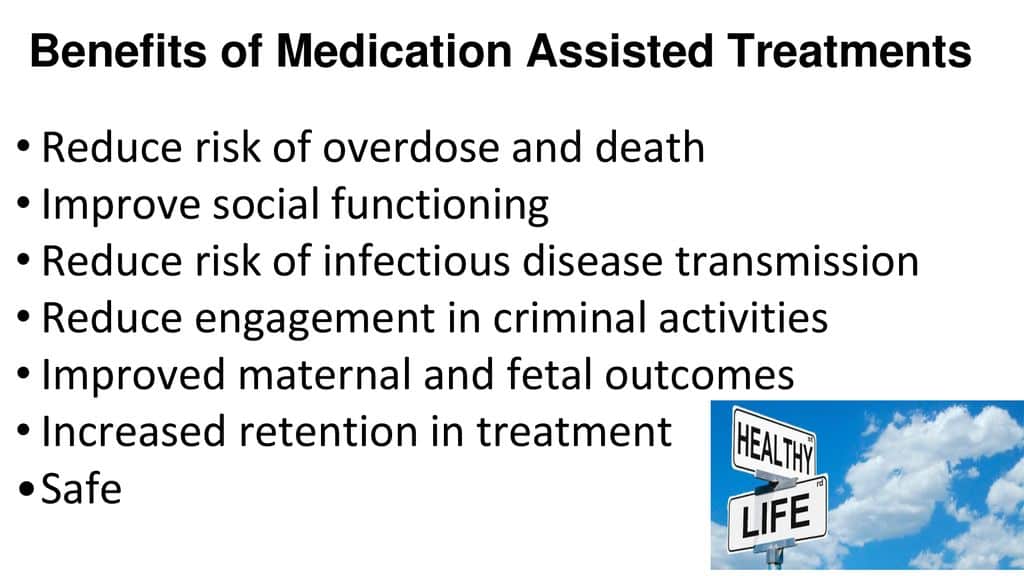Medication-assisted treatment (MAT) is gaining recognition as an effective approach to addressing substance use disorders. But have you ever wondered how does medication-assisted treatment work? In this blog, we will delve into the science behind medication-assisted treatment and explore its mechanisms. MAT combines medication, such as methadone, buprenorphine, or naltrexone, with counseling and behavioral therapies to provide a comprehensive treatment for individuals struggling with addiction. These medications work by targeting the brain’s receptors involved in addiction, reducing cravings, and preventing withdrawal symptoms. This allows individuals to regain control over their lives and focus on recovery. Understanding the science behind medication-assisted treatment is essential not only for individuals seeking treatment but also for healthcare professionals and policymakers. By uncovering the biological and psychological aspects of MAT, we can ensure that this evidence-based approach continues to be utilized effectively in combating substance use disorders.
Join us as we dive deeper into the science behind medication-assisted treatment and unravel the mechanisms that make it a promising solution in the battle against addiction.
The science behind MAT: How it works
Medication-assisted treatment (MAT) combines medication with counseling and behavioral therapies to address substance use disorders.
This comprehensive approach helps to address the underlying causes of addiction and supports long-term recovery.

Medication-assisted treatment offers numerous benefits for individuals struggling with substance use disorders. Some of the key advantages include:
The journey to overcome addiction is challenging, but MAT offers a powerful tool to increase the chances of success. By understanding its benefits and seeking professional guidance, individuals can embark on a transformative path toward healing, reclaiming their lives, and building a brighter future.
Remember, the decision to pursue MAT should be made in consultation with a qualified healthcare professional who can provide personalized guidance based on your circumstances and needs.
Reality: MAT medications are carefully prescribed and administered under medical supervision to reduce cravings and withdrawal symptoms without causing the same high or euphoria associated with substance misuse.
Reality: MAT is most effective when combined with counseling, therapy, and other behavioral interventions. It addresses the physical aspects of addiction while therapy addresses the psychological and emotional aspects.
Reality: MAT can be effective for individuals with varying levels of substance use disorders, from mild to severe. It is tailored to each individual’s needs and can be used as part of a comprehensive treatment plan.
Reality: Addiction is a complex medical condition, not a moral failing. MAT is a legitimate and evidence-based treatment option that can help individuals regain control of their lives and achieve long-term recovery.
Reality: Research has shown that MAT can significantly improve treatment outcomes, including reducing the risk of relapse, improving retention in treatment programs, and reducing the risk of overdose death. When combined with counseling and support, MAT can be an effective long-term solution for managing addiction.
It’s essential to challenge these misconceptions and educate others about the benefits of MAT as a legitimate and effective treatment option for substance use disorders. By addressing these myths, we can reduce stigma, increase access to treatment, and help more individuals achieve recovery and improved quality of life.
Conclusion: The future of medication-assisted treatment
The science behind medication-assisted treatment is constantly evolving, with ongoing research and advancements in the field. As we continue to uncover the biological and psychological mechanisms of addiction, we can further refine and optimize medication-assisted treatment approaches.
The future of medication-assisted treatment holds promise in expanding access to care, tailoring treatment to individual needs, and integrating MAT into mainstream healthcare systems. Efforts to reduce stigma, increase awareness, and promote evidence-based practices will contribute to a greater understanding and acceptance of MAT as a valuable tool in addressing substance use disorders.
By combining medication, counseling, and behavioral therapies, medication-assisted treatment provides a comprehensive and holistic approach to recovery. It offers hope, support, and a pathway for individuals to regain control over their lives and achieve long-term recovery from addiction.
For more details and personalized guidance on how medication-assisted treatment works, connect with us at Relevance Recovery, your trusted addictions recovery center. Our team is dedicated to providing comprehensive support and evidence-based treatment to help you on your journey to lasting recovery. Don’t hesitate to reach out and take the first step towards a healthier, addiction-free life.